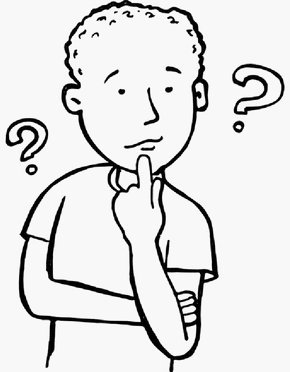-
Par 1 euro Lycée Leclerc le 24 Mars 2014 à 15:22
Commentary of “The fall of France”
B
By Lucas Burckel and Mathieu Kuhm, Monday, 24th march 2014
The article is entitled « The fall of France ». It was written by Janine di Giovanni and published on the Newsweek’s website on January 3rd 2014. Newsweek is an American quality press magazine founded in 1933. This article is available on internet (link : http://www.newsweek.com/fall-france-225368 ). Janine di Giovanni makes the analysis of the situation in France. However,di Giovanni made some errors, the article becomes a biased one . Newsweek is considered as a reliable source; it is the second largest news weekly magazine in the U.S.
This article explains us ,how and why, France has lost both its prestige and power. Janine di Giovanni quotes some examples that show us the issues you have to tackle when you live in this country.
For example she says that “since the arrival of the socialist president François Hollande in 2012, income taxes and social contributions in France have skyrocketed”. She says that the people creating economic growth are leaving France to develop their talents elsewhere, because of the top tax rate. She explains that for the two past years there has been a noticeable decline in France. “ The socialism increases the difficulties to start small business”, that’s why young graduates escape to London, to plan their future. In this article, we can read that the cost of everyday life in France is astronomical. Janine di Giovanni writes she saw people taking wild advantage of the system. She gives the example of a cameraman who works only five month a year and spends the other seven months in his house in the south of France living from the states subsidies. She says that:”all this handing out money left the state a bankrupt”.
She writes that the tunnel-vision philosophy will kill France. In fact they refuse to look outward. We can read that “the best thinkers of France have left the country”, that “France is dying in a slow death” etc…
She says that she won’t leave this country she has adopted.She encourages France to wake up and reinvent itself.
Janine di Giovanni, who has lived in Paris for 10 years, made some errors in the analysis she makes about France. Some examples... :
The article says that the top tax rate in France is 75 %. The top income tax rate is 75 %, but only people who earn more than one million euros, pay this rate.They don't pay it for the whole income, but for the sum over a million euros. Moreover, she says that there is no French word for “entrepreneurs”. It’s strange.... the French equivalent for “entrepreneurs” is “entrepreneurs”. This word is a French one and the Anglo Saxoncountries borrowed it from the French language . So, she makes error. Then, she says that Paris beats now London as one of the world’s most expensive cities. London is the 2nd most expensive city in Europe and Paris only the 12th. Giovanni says that she lives in France but her sources aren’t very reliable... For example, she tells us that a half liter of milk costs nearly 3 euro in Paris. Once more, her sources are false. She must buy her milk in a jewellery... I don’t know. In a normal supermarket, half a liter costs 75 cents. The journalist claims that “diapers were free” and that “free nurseries existed in every neighbourhood”. Once more, these assertions are false. Diapers aren’t free : you have to buy them, like everywhere in the world in the world and there are no free nurseries in France. Unless you lived in an utopian society, they wouldn’t be free. This article loses his credibility with these errors, Janine di Giovanni too.
To conclude you should never believe everything you hear, see or read. You should always have a critical mind when you receive information. Do not hesitate to check if what is writte is true or not. Everybody can make errors and sometimes it changes the whole meaning. We may regret that these mistakes were made by a famous journalist and published in a quality newspaper.
 votre commentaire
votre commentaire
-
Par 1 euro Lycée Leclerc le 24 Mars 2014 à 14:11
05/03/2014
Do readers always keep their critical thinking?
Article written by Lehmann Anne-Laure, 1ES1
Hey guys! Today I'm going to present you a recent article called "The Fall of France" written by Janine di Giovanni, a journalist from Newsweek magazine. At first, we'll see if that magazine is usually considered as a reliable source. Secondly, I'll sum up this article so as to understand its context. Then, we'll focus on mistakes that the journalist made while writing it. Finally, this will bring us to a conclusion: Do readers always keep their critical thinking when they get some information?
Newsweek is a weekly American magazine which spreads general information and was founded in 1933. We can say that it is a very famous magazine as it was the second biggest weekly American magazine in 2004. Thus, we can infer that it might be a reliable source and usually people don't question its information!
This article depicts the education system and the economic and political situation in France. Actually, according to the journalist, the drawbacks are dominating the assets in this country. It says that France suffers of a "brain drain" since Louis XIV because young graduates see no future, they can't "build, create and thrive". Moreover, France is wasting money in vain things such as appointments by a physical therapist for new mothers, or paying the unemployed persons too long and too much: "all this handing out of money left the state bankrupt". France is indeed described as a "profligate state", unemployment figure, taxes, and the price of everyday living are high. Finally, France is underrepresented and isn't open to the world: "The French don't like to speak English". However, France has the best agricultural industry in Europe, a strong tourist industry, an international business of luxury good, an excellent health care, and at last, the French are good atbuilding rails and good at aeronautics.
Even though Newsweek might be a reliable source, we can still notice errors in this article! Firstly, some arguments are false as regards the family policy. Unfortunately, there are no free diapers and free day-care in France! Furthermore, families don't get the nappies free and don’t have a free childcare in their neighbourhood! But to my mind, what beats everything is: "A half liter of milk in Paris, for instance, costs nearly $4 - the price of a gallon in an American store." I even think I don't have to justify that this assertion is false, you can deduce it by yourself! If you are curious, I've found more criticisms about this article on a French women web magazine "TerraFemina":
http://www.terrafemina.com/culture/medias/articles/35655-janine-di-giovanni-10-cliches-de-la-journaliste-de-newsweek-sur-la-france-demontes.html
As the article is aimed at American readers, they may not question the reliability of the information. In this precise case, we can also wonder why the journalist wants her son to make his life in France! Only out of pity? Certainly not!
In the end, we can deduce that the readers should never forget to use their critical thinking! This article is the perfect example to show you may read a biased article even in a reliable source!
 votre commentaire
votre commentaire
-
Par 1 euro Lycée Leclerc le 24 Mars 2014 à 12:22
“The Fall of France” Topic: Means and places of power – the power of the media
By Mathilde Winniger 1ère ES1
We studied an article taken from Newsweek an American quality news magazine which is the second-largest news weekly magazine in the U.S., published in four English language editions and 12 global editions written in the language of the circulation region. This article was written by Janine Di Giovanni and published on January 03rd 2014. It deals with "the fall of France" as the title indicates it.
First of all, the journalist talks about the brain drain.She refers to the historical context of the French Huguenots who left for other countries (mainly the USA) in the XVIIth century. Since 2012, taxes and social security contributions have skyrocketed; therefore there is a new brain drain. Moreover, there is no French word for “entrepreneurs”. After that, she highlights that the French minister of finance is hated by many.
The French have some assets, all the same . But, young graduates leave France for London, the unemployment figures and the price of basic products have increased tremendously. She compares the accommodation in London and in Paris; Paris seems to be more expensive than London. On the other hand, there are subsidies for a generous family policy. She emphasizes the French unemployment and retirement money. Then, she criticizes the French as being self-centred, bad at languages and reluctant to join the global village. The French education system doesn’t favour visionaries. Nevertheless, at the end of the article, the journalist wants her son to build his future in France…Indeed, this article seems to be a joke... it has countless obvious mistakes for anyone who knows even a little bit France. Newsweek needs to do a fact-checking here if it wants to be consistent in promoting journalistic standards of excellence and rigor.
For example, the French have to pay 75% of taxes only on the amount over a million euros, i.e when they earn more than one million€ a year! Furthermore, the French equivalent for “entrepreneurs” is “entrepreneurs” as it’s basically.... a French word. Paris hasn’t beaten London which is the second of Europe’s most expensive city whereas Paris ranks 12th. At last, half a liter of milk is much cheaper than 4$!
Most of the information given aren’t true or have many mistakes; we can also say that the article is biased. She should have entitled his article "the fall of Newsweek" as it was usually a reliable and unbiased source! Actually, the journalist gives mainly a negative point of view of France She is entitled to do so as long as her examples are real ones. The examples given are either false or she quite exaggerates the facts.Finally, she wants her son to make his life in France, so the conclusion is not logical!Why would a mother want a son to earn his living in a country with so many negative aspects??
Thus, this article created many indignant reactions all over the world. As the article is aimed at English speaking readers all around the world, they may not question the reliability of the information. That’s why, to conclude, the readers must always keep a critical mind and not a blind trust in newspapers or magazines. Be distrustful and open-minded…don’t belong to a flock of sheep!
Here's the link to the Newsweek page
http://www.newsweek.com/fall-france-225368
 votre commentaire
votre commentaire Suivre le flux RSS des articles de cette rubrique
Suivre le flux RSS des articles de cette rubrique Suivre le flux RSS des commentaires de cette rubrique
Suivre le flux RSS des commentaires de cette rubrique




